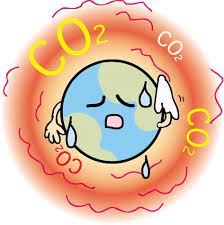Global Warming

According to NASA global warming has been an issue since the late 19th century and shows no signs of slowing down especially with modern fossil fuel usage. The Earth is heating up at dangerous rates, causing many heat records with 2016, 2019 and 2020 being the 3 hottest years. 2022 has been the 6th hottest year on record, with an annual average of 58.55 degrees Fahrenheit compared to the 20th century average of 57 degrees Fahrenheit.
The change in temperatures has already resulted in an increase in illnesses such as Cryptosporidiosis, Dengue, Ehrlichiosis, and fungal diseases like Valley Fever and Histoplasmosis. Global warming has also had a large effect on animals, especially those in colder climates and others that hibernate. The Polar ice caps are shrinking at a rate of 9% every decade, resulting in thousands of animals native to these climates either dying, or being displaced. Another problem with global warming melting icy climates is the rising sea level. In 2021, the world saw a record high with the seas being 3.8 inches above the 1993 levels.
Global warming is posing serious danger to all life on Earth. According to ucsusa.org, fossil fuels are “the main source of global warming emissions.” With major heat production from the mining and burning of fossil fuels which are vital to many companies, governments, and the global economy, the world isn’t likely to see global warming slow down. With NASA predicting that 2024 may be the hottest year on record. Unless changes are made in the big industries and governments that are burning through fossil fuels, the world may lose habitability.

Tony Figueroa is a sophomore at WHS and second time writer for the school's newsletter. While he's not a consistent writer, he puts effort into all the...




